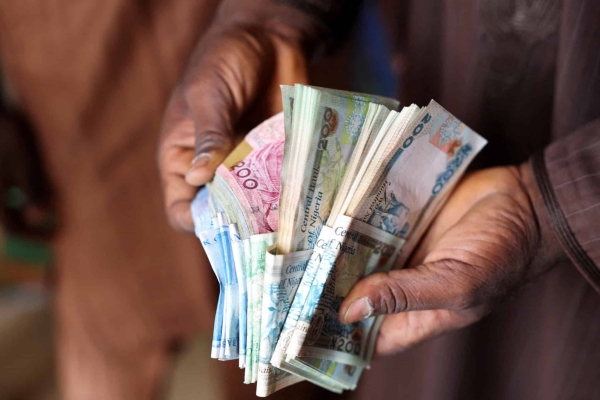The Minister of Finance and Coordinating Minister of the Economy, Wale Edun, has said that the increase in Nigeria’s revenue recorded in the 2024 fiscal year is being strategically allocated to various social intervention programmes aimed at improving the living standards of citizens and addressing pressing societal needs.
The minister said the social investment programme is targeted to impact 60 per cent of the poorest, reaching 20 million persons.
He also revealed a comprehensive proposed agenda for economic reform, which aims to reduce inflation, create jobs, and stimulate growth in key sectors of the economy.
At his October 1, 2024 address, President Bola Tinubu announced that the government’s revenue for the first half of 2024 (January to June) stood at over N9.1tn—more than double the N4.06tn generated in the same period in 2023.
Speaking at a panel session titled ‘Fiscal Reforms for a More Secure Future’ during the 30th Nigeria Economic Summit in Abuja on Tuesday, Edun said the increased revenue is primarily being used to finance social programmes aimed at mitigating the impact of essential but challenging reforms that have affected the cost of living.
He said, “In terms of revenue, the number one place to look was inwards, domestic resource mobilisation. That’s where the government started. By the first half of this year, revenue had doubled.
“Aggregate government revenue was more than doubled. And that was achieved by applying technology very robustly.
“We have applied technology in a way that essentially reforms the civil service. Rather than waiting for compliance from government ministries, departments and agencies and government companies, we looked at what the rules and regulations were, how much a company was allowed to spend on its revenue, and then how much of its surplus it had to provide to government.
“The social investment programme is spearheaded by direct transfers to reach 60 per cent poorest in the population. And right now, 20 million households are being supported directly. And it’s going to rise to, well, 20 million people, four million households so far, and it will rise to 15 million households who will be paid directly by the government.
“That is how President Tinubu’s government is spending the money which is being yielded from better oil production.”
Edun also emphasised the government’s focus on agriculture, manufacturing, oil, and housing as vital drivers of Nigeria’s economy.
“We are looking to food production to help bring down inflation,” he explained.
“We aim to make food more available, affordable, and to reduce the cost of living for Nigerians.”
According to him, the interventions through direct cash transfers have reached 4m households already.
In the oil sector, Edun said the minister also discussed the government’s approach to the oil and gas sector, emphasising its critical role in generating foreign exchange.
Edun revealed that recent reforms have attracted significant investments, including an additional $10m from ExxonMobil and other key industry players.
“The oil sector is our first avenue for foreign exchange and global revenue,” he stated, expressing optimism about sustained contributions from local and foreign investors alike.
These measures, according to him, have encouraged Nigerian manufacturers to commit up to $4.2bn in investments, boosting the country’s economic prospects.
The minister also highlighted other initiatives, such as the student loan scheme and consumer credit made available to workers to enable them to purchase household goods or convert their vehicles to cheaper, cleaner Compressed Natural Gas fuel.
In the agricultural sector, the government is providing grants and loans worth up to N75bn to support one million small and micro enterprises.
For larger companies, Edun said an additional N75bn is being disbursed in tranches of N1bn per company at a nine per cent annual interest rate, helping them manage the cost of production and operations, particularly in light of the recent foreign exchange adjustments impacting their profit margins.
“This is how President Tinubu and his government are spending the increased revenue, which has been driven by improved oil production and macroeconomic reforms that are expected to save the country five per cent of GDP,” Edun explained.
“There is a broad array of social investment initiatives where these funds are being directed.”
Also speaking at the summit, the World Bank Country Director for Nigeria, Ndiamé Diop, acknowledged the country’s significant revenue increase, noting that its revenue-to-GDP ratio is expected to improve.
He pointed out that in 2022, Nigeria spent 12.9 per cent of its GDP, but revenue covered only 7.6 per cent, leaving the country with a substantial fiscal deficit funded mainly through debt. “This trajectory could have led to a crisis,” Diop warned.
The ongoing reforms, he suggested, are essential to stabilising Nigeria’s fiscal position and ensuring sustainable economic growth.

